Transitioning loneliness into beauty
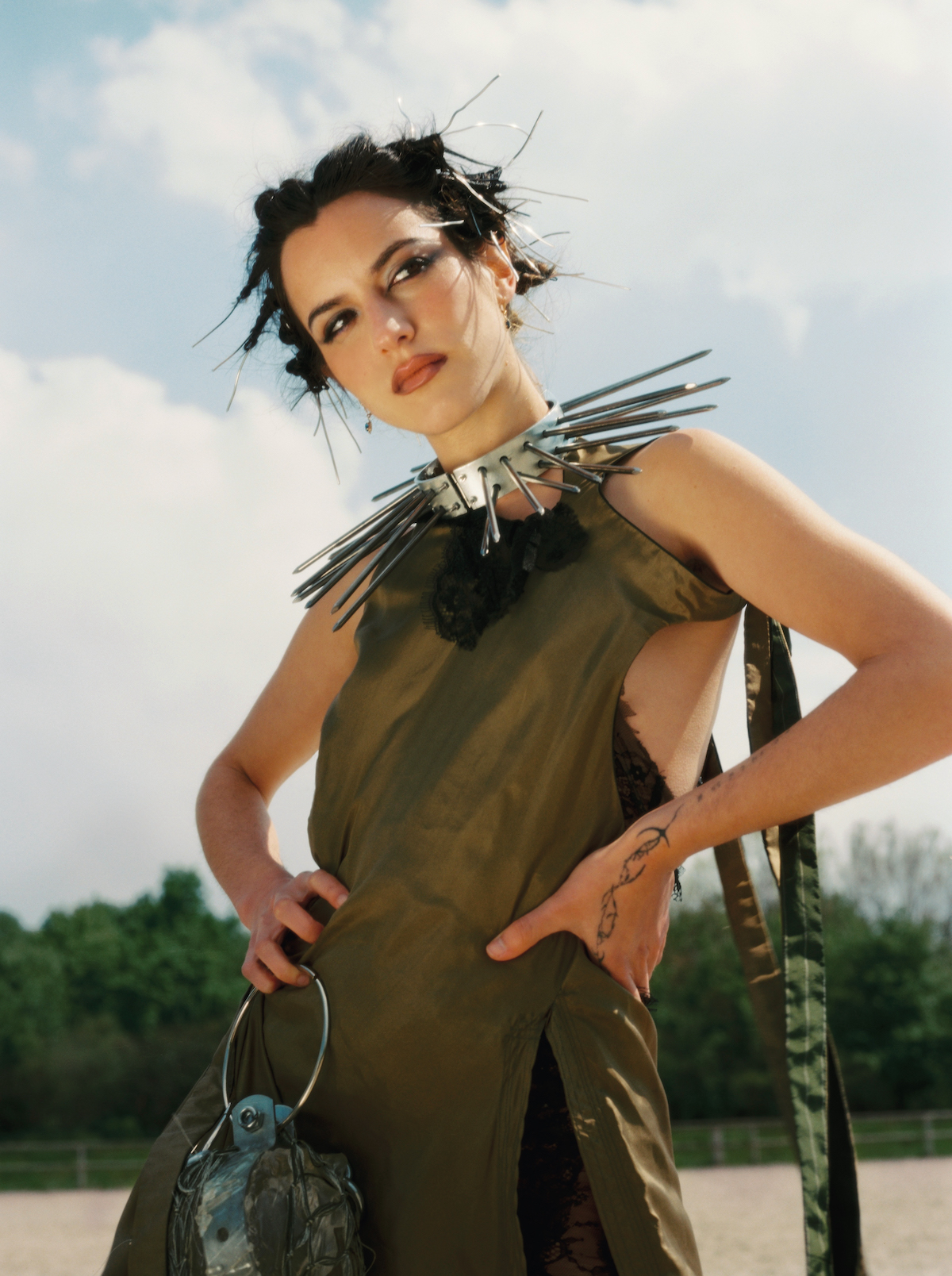
All clothes, bag and hair accessory Lucas Lasselin
Inviting us into her imagined universe, Parisian musician OKLOU is a true enchantress of melody. Having grown up in the countryside of Western France, Oklou’s work has become the siren call of nature, releasing us from the mundane and welcoming the surreal. With her debut album, Galore, becoming the mixtape of a personal spiritual reckoning, it was easy to enter into the artist’s optics and discuss the long-ago era of yesteryear. Classically trained and uniquely formulated, her electronic synth and canonical ‘cuteness’ is just the beginning. With the power to narrate life through her own particular lens, Oklou—aka, MARYLOU MAYNIEL—has found both peace and healing, creating a new home for herself and carving a path for others to follow…
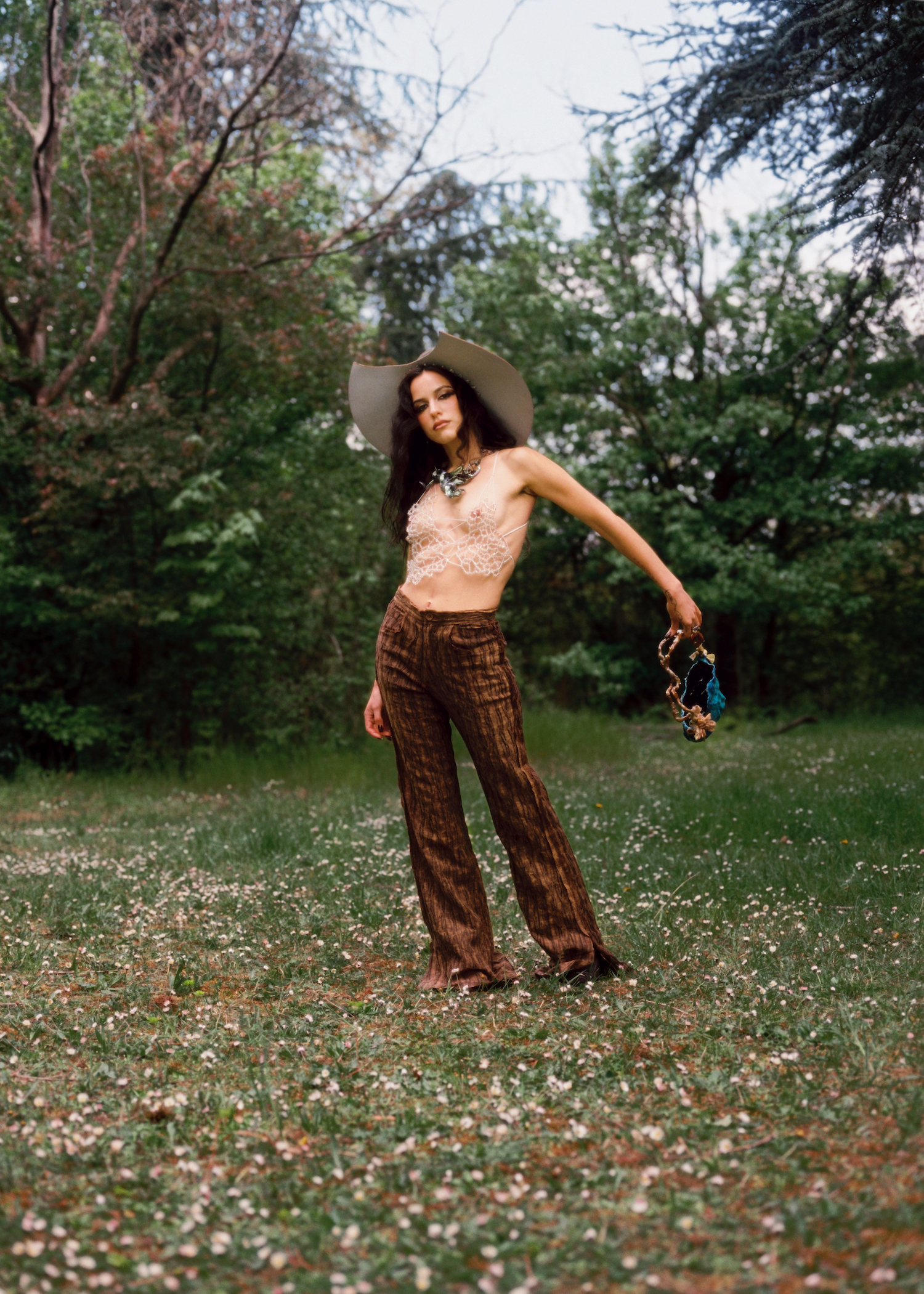
Top Angele Lepolard, trousers Transe Paris, hat Frida Jōe, necklace From The Deep Sea, bag stylist’s own
Your music evokes such a sense of escapism—something particularly important given its (timely) lockdown release! Was that part of the original intention for the album?
Oh, one hundred per cent! I think this feeling of escapism is actually quite mature. Originally, the album’s intention comes from a personal story. It became a reaction to what I had been seeing in my own life. It’s funny that it came out during 2020, because I actually made it for myself to run away—I hope it gave the same feeling to the people that listened during lockdown.
Definitely! For me, it was a spiritual experience, triggering a sort of internal journey. Was this something you also experienced in the process of creation?
There’s always a part of creating that can be seen as a healing process. However, I see the album as almost a nice souvenir for the rest of my life. But, that’s just how I see it now; whilst creating Galore and focusing on it, it definitely took me away from the boredom and loneliness that I was experiencing during that period of time. It’s been one of my most interesting journeys so far—maybe just simply because it’s the biggest project I’ve ever worked on. With this, it became an emotional investment.
Your music moves through an alternate world, building an ethereal sound. Do you think music is a way of deepening your understanding of the world? Or maybe even a way of dismissing it?
It’s definitely dismissing it—but in order to get back to it. I needed to disconnect for real, because I was already not truly connected. It’s as if, because I wasn’t able to find a way to be happy, I needed to explore the feeling of loneliness… but in a more beautiful way, going further than just staying home and waiting for something to happen without inciting action. It was a dynamic range of understanding. But yeah, it’s definitely the universe I’ve been projecting myself onto during the writing process… and that’s a good word—I must remember that one.
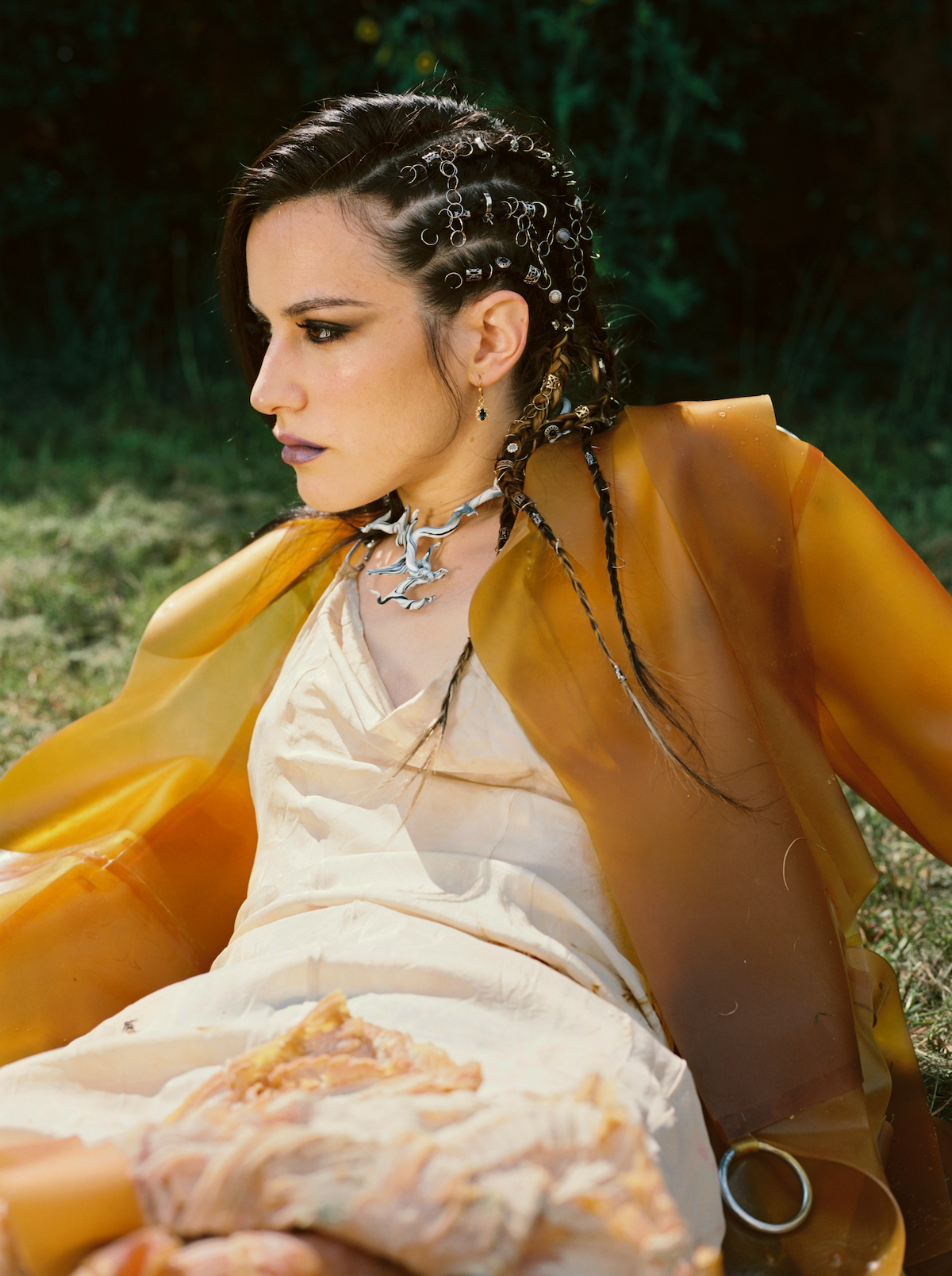
All clothes, necklace and boots Lucas Lasselin
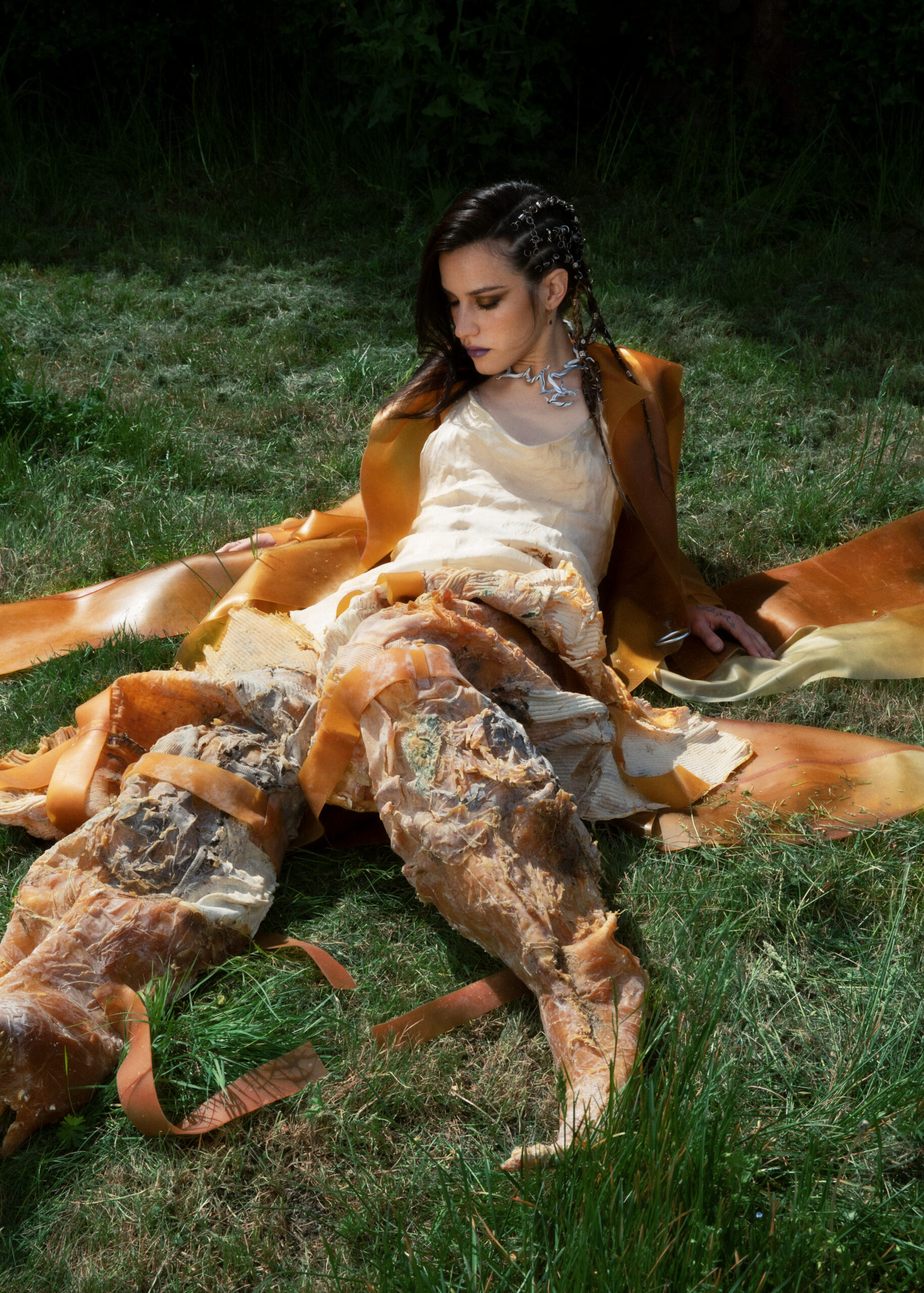
All clothes, necklace and boots Lucas Lasselin
Being classically trained gives your music such a fresh, distinctive sound. How do you use that education today?
There’s so much to say about this! But essentially, I started producing when I got more interested in experimental music. In the beginning, when I would write, I was always trying to find melodies or harmonies that were a quick fit—in a way, I was trapped by my knowledge of music theory. Because I am a pianist, my hands would always know where to go and they would always go to the same places. I would envy people who were making mistakes! I would listen to stuff that you could call a ‘mistake’ and I would find it so great to just embrace these imperfections, but I couldn’t do that. Often, I’m trapped inside the perfect and tonal world of what I’ve been working on for 15 years of my life. This past year was about trying to find a way to use it productively, and be happy and be proud about that. I think that releasing more classical—or, in very simple terms ‘cute’ sounds—is a place where I feel very good.
Would you say you felt at home in this space? Within the intersection of knowledge and ‘mistake’-making?
Yeah, it’s funny because it is definitely a new home. I don’t know this home that well (yet), but that’s great as I get to explore it even more! So it is home, but still an unknown one.
It’s this fusion of classical and synth that makes Galore so distinctly ‘you’. It’s nice to hear that you feel good in that space you’ve created.
It took me a while. And I think it’s still gonna be a lot of years to evolve, but I cannot avoid this knowledge…
Your music bridges the gap between human and earth. When are you able to make that connection best?
Nature’s dimension is always there when I write. It is a part of me. It is a part of where I grew up. Because I didn’t grow up in a city, nature is just something that I know. It’s not always consciously there, I’m not always trying to make that connection, but it is ever-present.
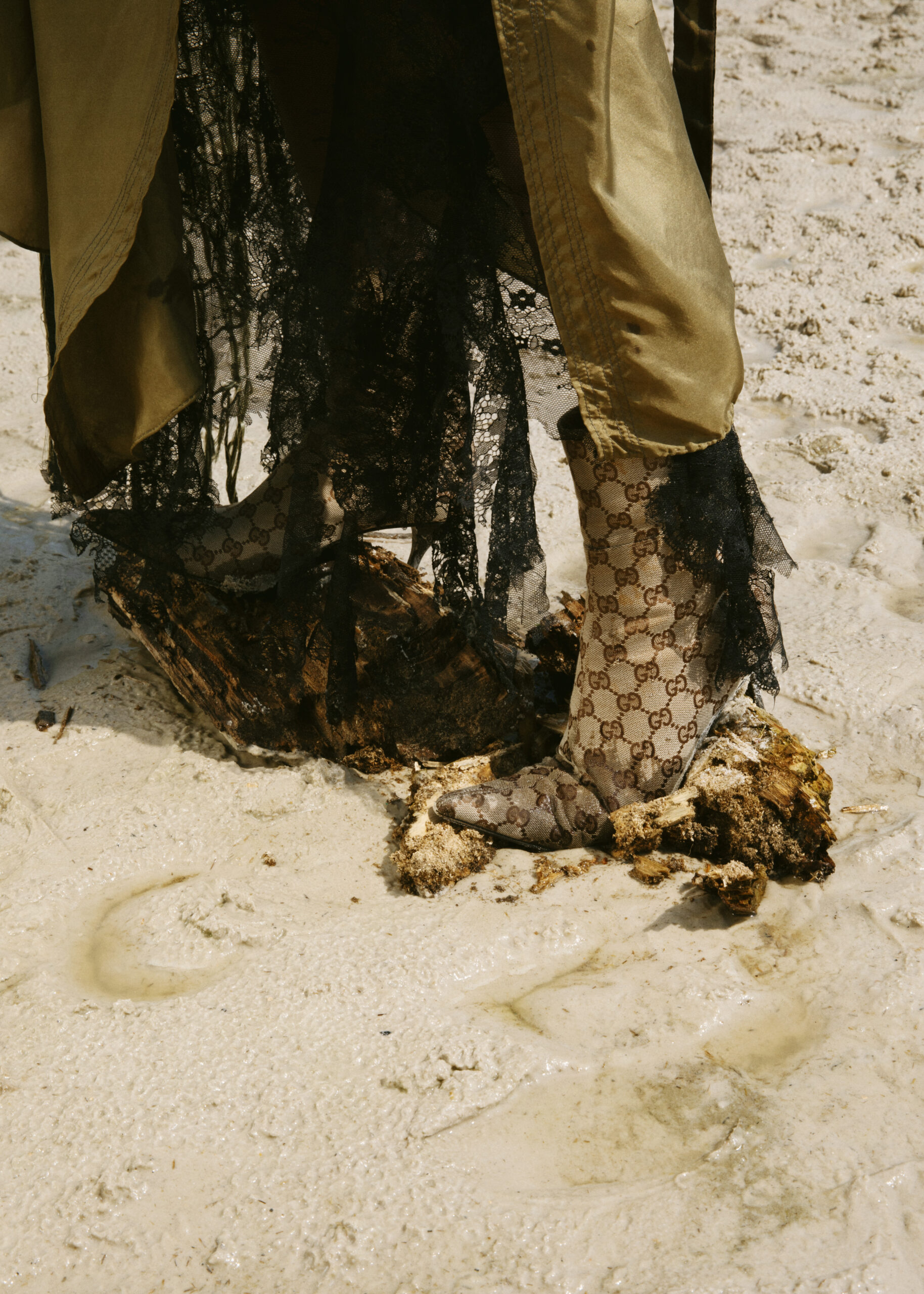
Dress Victor Weinsanto, boots Gucci
For Galore, you travelled to the mountains of Valencia. How did that environment influence the final sound?
I’m not sure how much of an impact it had, but what I do know is that it felt extremely good and I felt like the environment was exactly the picture, the landscape, I imagined. The rocks, the mountains—it was very accurate. So I guess it would have had some impact on the writing, but it for sure helped us be dynamic, project the same energy. It was great—it was perfect, actually.
You’ve talked about the notion of a dream or parallel space of visuals and sound in the past. How does this apply to Galore?
With Galore, I decided to follow that idea of escapism and making the lonely phase I was in into something more beautiful. My first concepts were of the environment and the landscapes that I would imagine: forests, mountains, trees. You know, they’re pretty major. It was a quest to find myself—a way to give sense to my existence. Again. I was depressed, you know, so it was scary. It was all a quest back then.
Beauty really does prevail. In many ways, the album symbolises this transition.
‘I didn’t give up on you’ is about literally saying goodbye to that entire fantasy and getting back to real life, taking everything I learnt during this experience. So yeah, it’s just really figurative; really, like, straight to it.
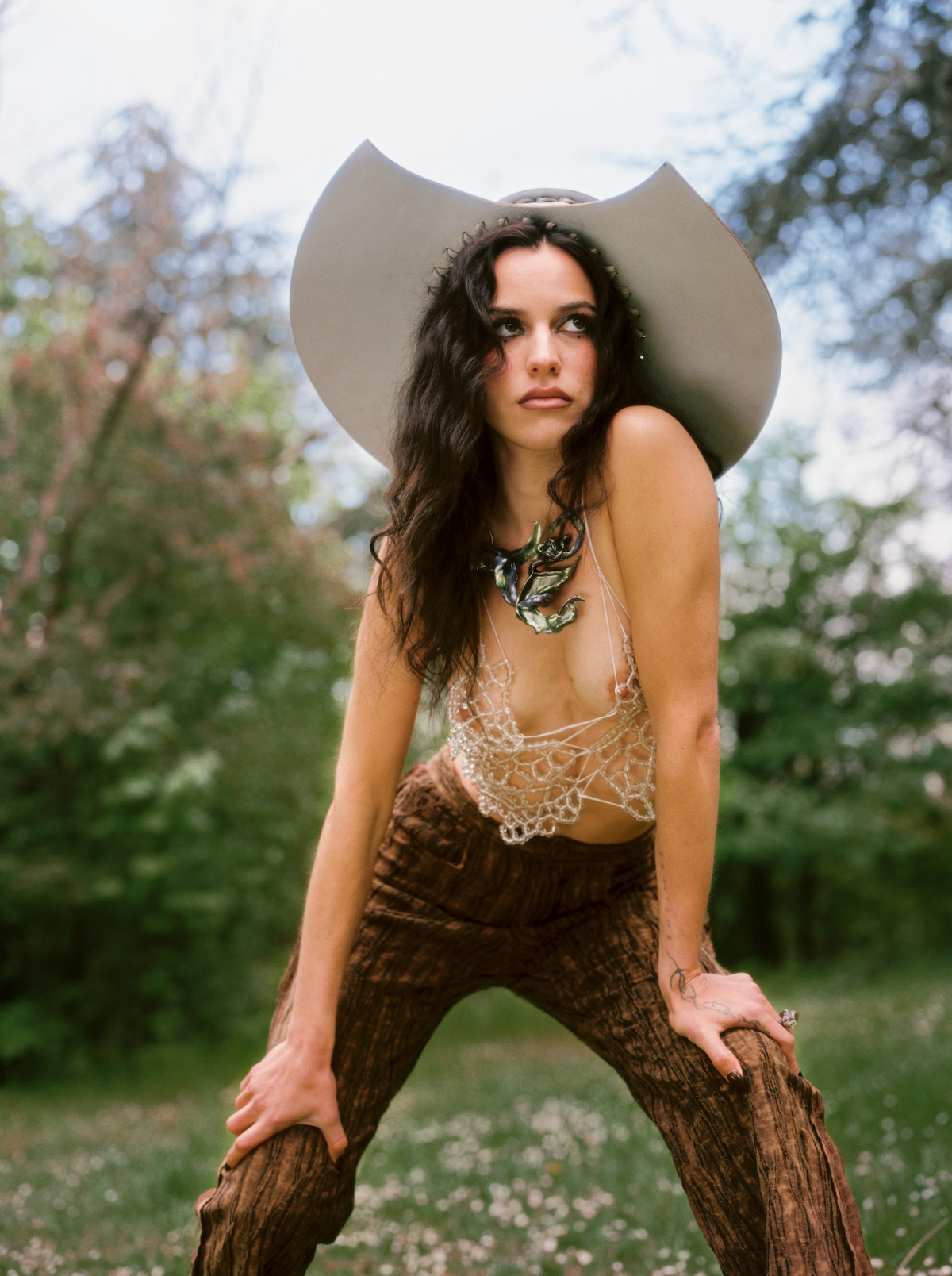
Top Angele Lepolard, trousers Transe Paris, hat Frida Jōe, necklace From The Deep Sea, bag stylist’s own
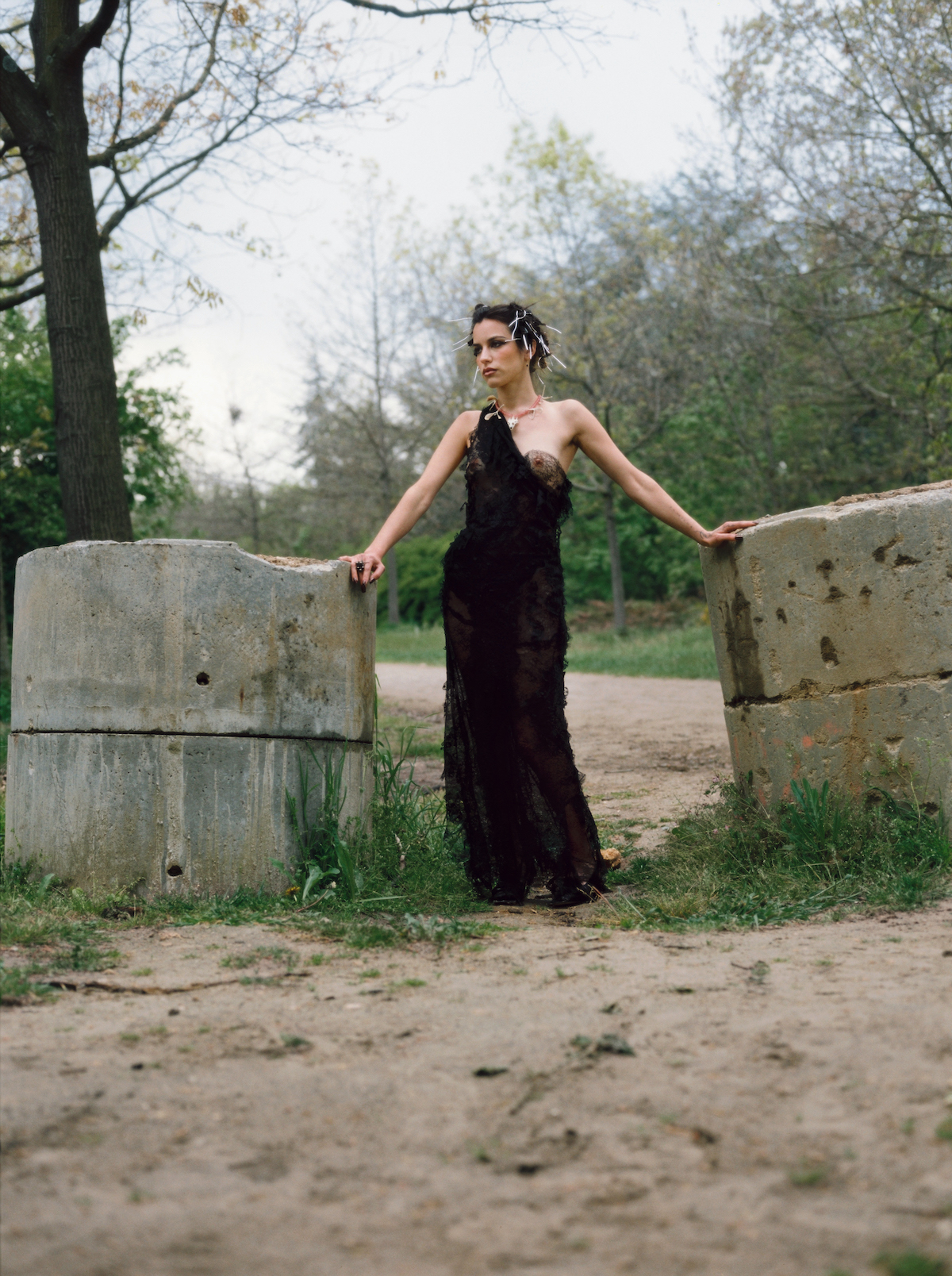
Dress Victor Weinsanto, top Angele Lepolard, necklace Transe Paris, hair accessory Lucas Lasselin
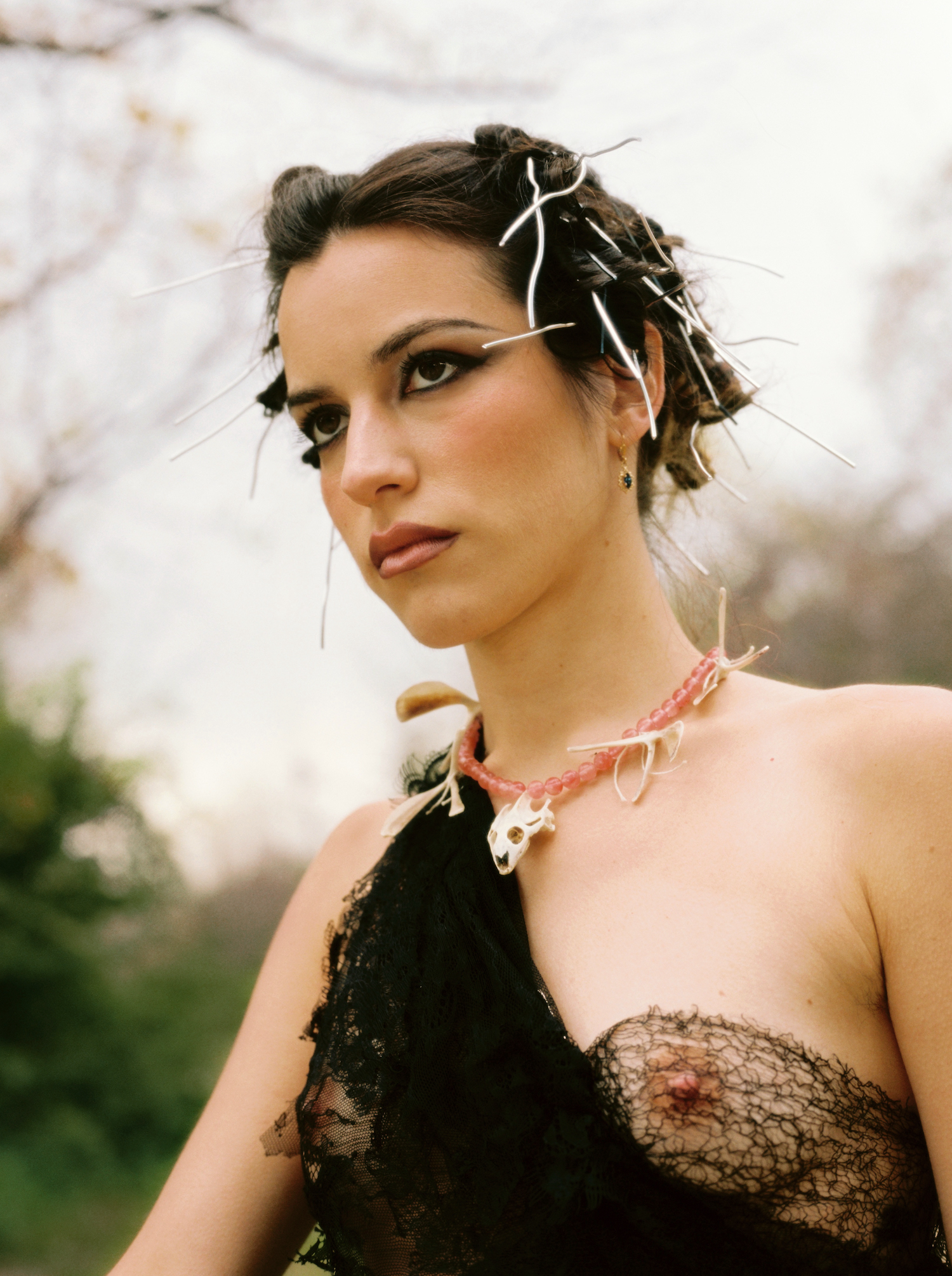
Dress Victor Weinsanto, top Angele Lepolard, necklace Transe Paris, hair accessory Lucas Lasselin
Could you tell us a little more about the album name?
Yeah, so I apologise to the fans for the reason why I chose that title! It’s not lame—but almost. No, it’s not lame… but it is a story so that is OK.
OK! Now we’re intrigued!
It was actually the name of someone I cared really deeply about on SoundCloud. I speak about that person in Galore because it’s about our story… So I always had that name somewhere in my head, but it started off as just a name to put on the project! However, I never got a better idea and I just became used to it. ‘Galore’ feels evocative, the way it sounds—almost sci-fi? Or like a Greek god? Maybe even a spaceship? It’s an open book of a word which I have reappropriated with a new existence for this project. It began naked of significance—and became what it is today.
It’s so fascinating to hear the growth of a single world—how it evolved into what the entire album became. Do you think that your music tracks your personal and spiritual growth?
Of course! It’s never ending—growth will never stop, and that’s what’s magical about making art: seeing your own growth and having a very concrete trace of it is a blessing.
Who—or what—inspires this growth?
There are two artists I reference when it comes to Galore in particular: CAROLINE POLACHECK and ROSALÍA. I found so much strength and similarity with these artists and it really inspired me witnessing their specificities—Rosalía working around Flamenco and in doing so creating a community, and Caroline’s straight-up pop alongside her voice.
Dress From The Deep Sea
Words by Issy Wharton
Photography: Hélène Tchen
Styling: Amande
Make-up: Louisa Trapier
Hair: Yumiko Hikage—Agence Saint Germain
Photography assistance: Tene Niakate
Shop The COMING HOME Issue here
#worldwideunderground